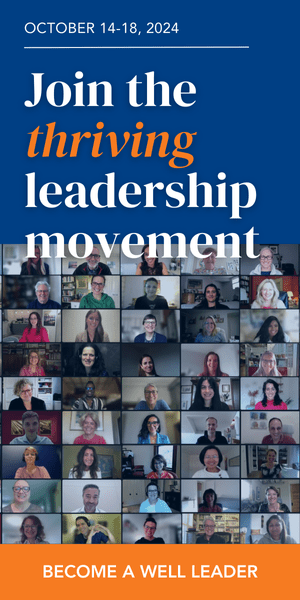In organizational leadership, the term ‘swirl’ usually refers to the point when a conversation devolves into a gyration of egos and bad behaviors, derailing any progress leaders might have hoped to make. From Caracas to Krakow, I’ve seen it in boardrooms, I’ve heard it on conference calls, and yesterday it even invaded my favorite coffee shop.
Out of the blue, a break had materialized in my work schedule and I was determined to take advantage of it. That meant getting myself out of the office before my to-do list filled up that rare luxury of free time. So I promptly packed up the laptop and headed to my favorite local coffee shop for a change of scenery.
I’m not much of a coffee drinker; for my afternoon treat I chose yerba mate. And the Maté Factor has the best in town. With tea in one hand and a ballpoint in the other, I sat down to write in my journal, taking advantage of a long-neglected opportunity to reflect on my busy life.
Just when I penned my first word, I overheard: “–But, my opinion is to implement that strategy now.” (Silence.) “Well, I don’t care what she says. I said we need to act now, not later.” (Silence.) “Fine! If you go that direction though, I’m not supporting it. And, I’ll make sure others on the executive committee don’t support it either.”
Granted, by now I was fully eavesdropping, although not by choice and not on purpose. The man at the next table was barking into his iPhone at full volume, unaware that the rest of us were trying to sip our drinks in peace. I needn’t have eavesdropped to know the conversation didn’t go well. His scowl carved deep into his face, his fists clenched till his knuckles were white, and he looked literally on the verge of fuming.
I can’t count how many times over the past two decades that I’ve heard this sort of conversation wreck executive teams’ potential for being productive. It’s generally the same pattern: opinions fly, emotions flare, stress escalates, people get angry or totally withdraw, and the dialogue does a tailspin. Leaders leave the meeting feeling unheard, uncommitted, and unlikely to act on whatever (if any) decisions the group made. This downward spiral doesn’t just prevent people from getting things done in the moment, it tends to fester and erode the very foundations of trust on which true collaboration and leadership effectiveness are built.
In my early 20s, I remember venting to a mentor about being on one side of this kind of debate. I bent his ear with my arguments for why I was certainly right. Instead of buying into my particular set of prejudices, my mentor stopped my indignation dead in its tracks by asking: “Renee, would you rather be right, or would you rather be effective?”
Seems like the answer would be obvious, but it isn’t. A big-thinking, often wiser part of us wants to be effective, but a myopic part of ourselves just won’t let go of being right. As a result, this is a particularly useful question to ask any time you feel your own knuckles clenching or your scowl deepening. For me, if I honestly answer that question in the heat of the moment, I discover that sometimes I do want to be right above all else.
But I’ve also learned that the gotta-be-right part will ultimately sabotage being effective. Yes, you may know what’s wrong and what’s right at any given moment, but to truly fix a problem you’ll need to see if from new angles. Real, sustainable solutions come not from right or wrong, but from the results which can only occur when you consider points of view that differ from your own. Research, such as a recent University of Illinois study published by Harvard Business, shows that teams working together as a cooperating unit create better solutions than an individual alone (better, even, than the strongest problem-solving individual in the group.)
Why, then, does that gotta-be-right part persist? Why on earth would we ever choose “right” over “effective?” I’m fairly confident that it has something to do with our egos: like thin-shelled eggs, they crack easily. So we coddle them, we defend them, we encourage them… but rarely do we question their hidden agendas. If we did, we would find that when egos drive our conversations, the chance of collaborating and achieving our highest goals as leaders is usually sunk.
We seek fulfillment in life, we want to grow the talents in others, we hope to create healthy partnerships, and we intend to make a positive impact for our organizations and the planet. At least, that’s what the big-thinking wisdom inside us says. Strangely, if we aren’t paying attention to this internal wisdom, the narrow-minded ego can have the louder voice, just like that coffee shop man barking into his phone.
So, would you rather be right, or would you rather be effective? Could be something to ponder over your next latté.
Photo by kennymatic






